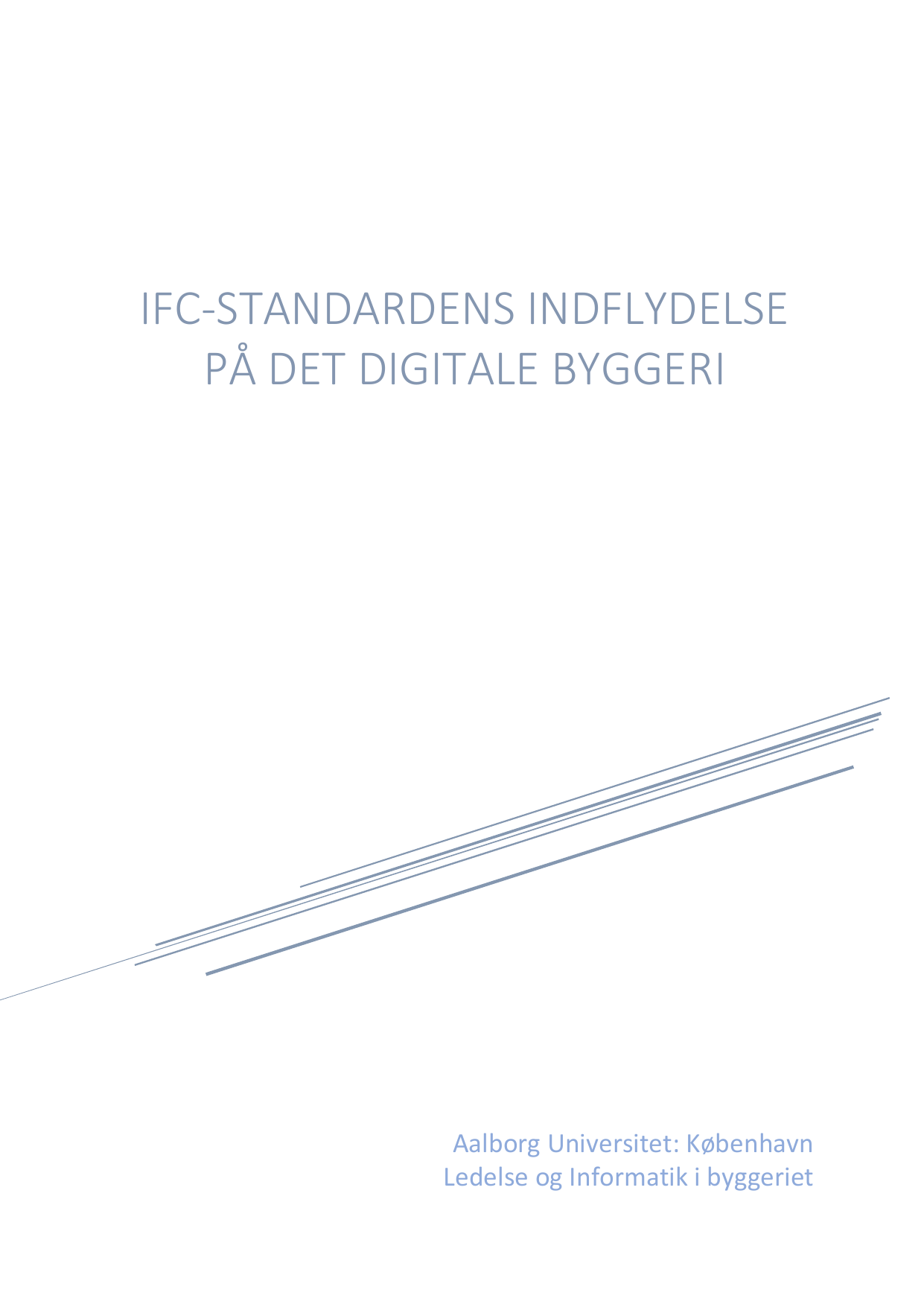
IFC-STANDARDENS INDFLYDELSE PÅ DET DIGITALE BYGGERI
Oversat titel
THE IFC-STANDARDS INFLUENCE ON DIGITAL CONSTUCTION
Forfattere
Semester
4. semester
Udgivelsesår
2022
Afleveret
2022-01-06
Antal sider
94
Abstract
Nærværende kandidatspeciale rapport er udarbejdet i efteråret/vinteren 2021. Omdrejningspunktet for rapporten er en undersøgelse af, hvordan standarder har indflydelse på byggeriets digitale værktøjer. Dette vil den gøre, ved en undersøgelse af den åbne buildingSMART standard IFC. Rapporten benytter sig af standardiseringsteori fra (Brunsson, et al., 2012) for at anskue hvordan IFC-standarden kan anskues i, udenfor og som værende en organisation i sig selv. Standardiseringsteorien kombineres med en kobling til institutionel teori, der skal anskue den forandring standarden er med til at skabe, og de forhold som standarden skal indgå i. Metoden til undersøgelsen er den kvalitative metode. I den kvalitative metode undersøges der, hvordan noget gøres, siges, opleves, fremtræder eller udvikles. I rapportens analyse, bliver der belyst at IFC-standarden ses som værende et fælles sprog, der er en nødvendighed for at kunne samarbejde i på tværs af aktører i byggebranchen, men også hvordan standarden ses som værende for statisk til at understøtte den praksis der er på vej, i dele af branchen. I rapportens diskussion, bliver der fremlagt synspunkter for den funktion IFC-standarden har nu, og den rolle IFC-standarden skal have i fremtiden. Hertil bliver der diskuteret, hvordan branchen strukturer data. Afslutningsvis bliver der konkluderet at IFC-standarden har været en nødvendighed for branchen, og har været med til at ændre byggebranchen. Standarden mister dog legitimitet, ved ikke at være i stand til at udvikle sig i takt med det behov der er i praksis. Hvis IFC-standarden skal fastholde sin legitimitet, skal den sandsynligvis kunne løfte opgaven med at understøtte Linked Data.
This master’s thesis has been written in the fall/winter 2021, and early 2022. The thesis is focused on an examination of the role standards play in context to the development of digital tools in the field of the Danish construction industry. This is done through a case study of the open buildingSMART standard IFC. The thesis uses standardization-theory from (Brunsson, et al., 2012) to analyze how the IFC-standard can be seen as being within, outside of organizations as well as being an organization in itself. The standardization-theory is supplemented with institutional theory, that helps picture the change that the IFC-standard itself is involved in, as well as the mechanisms that are trying to influence the IFC-standards claim for legitimacy and stability. The thesis uses the qualitative method of data collection, in which one wishes to understand what the participants do, say, experience in situations related to the IFC-standard. In the thesis analysis, we highlight how the participants view the IFC-standard as being a common language, which is a necessity, as it allows for cooperation between actors across organizations. The analysis also highlights how the IFC-standard is seen as being too static to properly support the praxis that is a part of the industry. The discussion part of the thesis is built on themes from the thesis analyses and supported by a literature study that enables a view of what the function of the IFC-standard has now, and the role that the standard will play in the future. Furthermore, a theme in thesis’ discussion will be how the construction industry structures its data. All of this will lead to the thesis’ conclusion, in which it is concluded that the IFC-standard has been a necessity for the industry, and that it has aided greatly in changing the way the industry operates. However, the standard is losing legitimacy by not being able to develop in the pace that the industry needs it to. If the IFC-standard is to maintain its legitimacy, then it needs to change so it properly supports a Linked Data concept.
